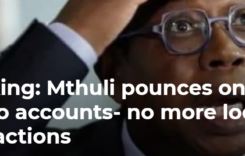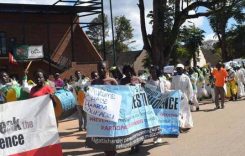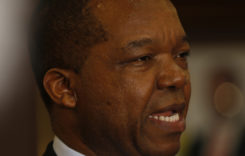ZIMBABWE President Emmerson Mnangagwa has repeatedly said the country will hold elections “in four to five months’ time”. One such occasion was on January 17, 2018 in Maputo, Mozambique.
This timeline points to an election being held by June, ahead of the constitutionally prescribed window within which Zimbabwe can go to polls.
The prospect of an early election was also raised by Mnangagwa’s spokesman, George Charamba, who told radio station ZiFM on January 11, 2018:
“Look, people are serious. We are worried about what to do by way of ameliorating the conditions of the people of Zimbabwe. We are worrying about elections, which will come sooner than you guys will ever expect.”
The Road to elections:
Zimbabwe is bound by law to hold its general elections this year between July 22 and August 22.
But these elections — covering presidential, parliamentary and council polls — can also be called earlier if the current parliament dissolves itself.
What does Zimbabwe’s 2013 constitution say about the timing of general elections?
In Section 143 (1) on the Timing of Elections, the Constitution says the polling date of a general election is determined by the life of a five-year Parliament, which runs from the date the President-elect is sworn in and assumes office.
In case of the elections due this year, former president Robert Mugabe was sworn in on August 22, 2013 and Parliament’s five-year term expires at midnight on August 21, 2018.
The new President, Emmerson Mnangagwa, who was sworn into office on November 24, 2017 after Mugabe’s resignation, is serving his former boss’s unfinished five-year term.
Mnangagwa has been nominated by his ZANU-PF party as its presidential candidate for the 2018 elections.
Can Mnangagwa call elections before July 22?
Yes, but he can only do so if the current parliament voluntarily dissolves itself under Section 143 of the Zimbabwe Constitution on Duration and Dissolution of Parliament.
Two-thirds of Members of Parliament have to agree to dissolving parliament.
What are the current numbers in parliament?
National Assembly (as at March 7, 2018)
ZANU-PF 194
MDC – T 53
MDC 2
Independents 2
Senate (as at March 7, 2018)
ZANU-PF 36
MDC-T 20
MDC 2
Chiefs 18
Disabled people’s representatives 2
ZANU-PF holds 72% of the National Assembly, more than the two-thirds majority required for the lower House to dissolve itself.
In the Senate, ZANU-PF members represent 45% of the total membership, falling short of the two-thirds majority. However, the party has traditionally enjoyed the support of traditional leaders in key votes.
Under what circumstances can the president issue a proclamation dissolving parliament?
- If at least 2/3 of members of parliament and Senate, sitting separately, pass a resolution to dissolve;
- If Parliament has unreasonably refused to pass an Appropriation Bill (provision of national budget);
- If Parliament passes a vote of no confidence in the Government.
Can the dissolution of Parliament be challenged?
According to Section 143 of the Constitution:
A decision to dissolve Parliament in terms of subsection (3) may, on the application of any member of parliament, be set aside on Review by the Constitutional Court.
An application for the review of a decision to dissolve Parliament must be filed with the Constitutional Court within seven days after the decision was published, and
- The Constitutional Court must determine the application within fourteen days after it was filed; and
- Pending the Constitutional Court’s determination of the application, the decision to dissolve Parliament is suspended.
Zimbabwe Electoral Commission Projected Time Outline
The new Chairperson of the Zimbabwe Electoral Commission (ZEC), Justice Priscilla Chigumba, maintains the organisation is working towards free, peaceful and credible elections although it has a record of being caught in the centre of controversial polls.
The commission has published a work schedule that assumes the 2018 would be held between July 22 and August 22, and with the following key dates:
EARLIEST DATE FOR PROCLAMATION OF ELECTION DAY
28 April 2018
LATEST DATE FOR PROCLAMATION OF ELECTION DAY
1 June 2018
EARLIEST DATE FOR SITTING OF NOMINATION OF COURTS
19 May 2018
LATEST DATE FOR THE SITTING OF NOMINATION COURTS
21 June 2018
EARLIEST POLLING DATE
21 July 2018
LATEST POLLING DATE
21 August 2018
ANNOUNCEMENT OF ELECTION RESULTS
Within 5 days of the end of polling, as set out in the Electoral Act
Factsheet compiled by Cris Chinaka: Editor-In-Chief of ZimFact, Zimbabwe’s first national fact-checking platform.
Do you want to use our content? Click Here











